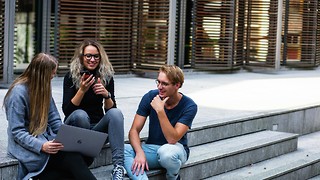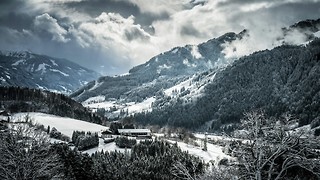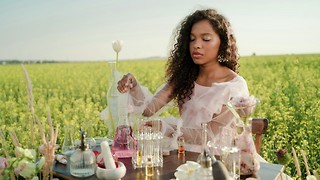Interview: John Haidar
Tom Powell talks to some graduating students interested in pursuing drama outside Cambridge. First up, John Haidar
During his time at Cambridge, John Haidar has directed CAST 2011: Macbeth, The Marlowe Showcase, The Leenane Trilogy on CamFM, and has acted in numerous roles.
What first drew you to theatre?
A production I saw at the RSC when I was 17. I’d had little experience of theatre before coming to Cambridge, but I knew that I wanted to try and focus on one exercise outside of academic work and push myself as far as I could go with it. It was a choice between theatre and rowing (to be honest, it wasn’t much of a choice). I think I probably auditioned for every production in Cambridge in my first term - that’s really important, I think. Just audition for everything. Audition until they can’t say no!
What draws you to a play and makes you want to direct it?
I think I’m drawn to parts rather than plays. If there is a role (or collection of roles) that you anticipate is going to get under your skin and raise interesting questions and possibilities then, for me, that’s worth exploring. It’s a way into the rest of the drama – a starting point, anyway. It’s important to me to be able to visualise the ‘imagined world’ of the play before I go into rehearsals. It’s essential to know where you’re going, stylistically, aesthetically and performatively.
You’re about to embark on a directing course at RADA – how did you find the application process, and what do you see yourself doing after that?
The RADA application process involves several rounds of auditions and interviews, even for directors, so it’s quite intense. For instance, in the second round, you are required to design and present a production of a play you have not yet directed in only fifteen minutes – lighting, sound, set, publicity, rehearsal process, everything. It can be intimidating and you’re always aware that there are only three places available per year, but it was such a rewarding experience. After that, I’d like to be based in the West End or Stratford-Upon-Avon.
Do you have a particular style or approach to how you like to direct?
I think it’s been described as ‘cinematic’ a few times. On average, I probably watch about five films a week. I’ve just finished writing a dissertation on the plays of the Irish writer, Martin McDonagh, and the modern ‘cinema of violence’ as well, so it’s probably not surprising that those films would influence my dramatic work.
By the time that I returned to Cambridge at the start of this academic year I had directed three early-modern plays – The Alchemist, Romeo and Juliet and Macbeth – each of which relied on a distinct conceptual setting. So, I decided to change direction completely and chose Tennessee Williams’s The Glass Menagerie. This was probably the best choice I’ve made during my three years at Cambridge. I feel like my approach is now much more focused on the text than it used to be and that the transition has been a positive step. I still love ‘concept theatre’, but I’m having fun playing around with words for the time being!
Any regrets?
Allowing myself to be affected by reviews. It’s a very human instinct and one that I think everyone involved in Cambridge theatre experiences at one point or another. After all, it’s easy to be a critic, isn’t it? What matters, I think, is that you continue to go out there and make the work that you want to make.
And the most difficult challenge you’ve had to face?
It still haunts me, but I’d have to say the second night of Romeo and Juliet, after a difficult first show, and at which point I think I’d been awake for about 48 hours. Luckily, we got through it – in the end, I was very proud of what we achieved with that production.
What’s your proudest moment in Cambridge theatre?
There are a few highlights that I will never forget: my first ADC show, touring my CAST production of Macbeth, assistant directing with Max Stafford-Clark. But I’d have to say my proudest moment was standing on stage with Sir Ian McKellen – with our cast and crew in the wings – for the sold-out Friday night performance of The Alchemist at the ADC. It was such a strong company and we’d been through a lot together over the previous six months. The atmosphere in the theatre was electric and it was a privilege to be part of.
What advice would you give yourself if you could speak to your first-term self?
Keep calm and carry on.
 News / British Academy elects 12 Cambridge academics22 July 2025
News / British Academy elects 12 Cambridge academics22 July 2025 News / Lord Smith elected Cambridge chancellor23 July 2025
News / Lord Smith elected Cambridge chancellor23 July 2025 News / Right-wing group calls for charges over Balfour portrait vandalism24 July 2025
News / Right-wing group calls for charges over Balfour portrait vandalism24 July 2025 Lifestyle / Keeping the spark alive (platonic edition)24 July 2025
Lifestyle / Keeping the spark alive (platonic edition)24 July 2025 Comment / Stop disarming people of their nuance23 July 2025
Comment / Stop disarming people of their nuance23 July 2025







